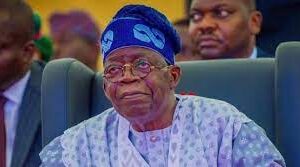The federal government and the United Nations High Commission for Refugees (UNHCR) have collaborated in providing humanitarian assistance to refugees and internally displaced persons (IDPs) in different parts of the country, in order to ensure that they are reintegrated into society.
Speaking Thursday in Abuja, when UNHCR officials, including UNHCR Country Representative (Nigeria), Chansa Kapaya, UNHCR Deputy Representative (Protection), John McKissick, Head Refugee Status Determination (RSD) Unit, National Commission for Refugees, Migrants and Internally Displaced Persons(NCFRMI), Murdakai Titus, paid a visit to the Ministry, the minister of Humanitarian Affairs, Disaster Management and Social Development, Hajia Sadiya Umar Farouq, said the ministry is working round the clock to ensure that Nigerian refugees in different countries return and are reintegrated.
Represented by the Permanent Secretary of the Ministry, Alhaji Bashir Nura Alkali, the Minister said: “The UNHCR is one of the key partners in achieving the mandates of the ministry. It has been diligently supporting the ministry in providing humanitarian support to refugees and IDPs. We have collaborated in so many areas. On the management of IDPs, one of the sources is on key recovery, which includes sustainable development of home grown models of tertiary reintegration and reconstruction. We are glad that the UNHCR is collaborating with us.
“Being the coordinating agency, the ministry has ensured the adoption of policies, including that of the IDPs, which incorporated the provision of the Kampala convention. The policy is an operating framework that guide us.
“To ensure sustainable long run solution, the ministry, in collaboration with relevant agencies, has formulated humanitarian framework, in line with global best practices. The federal government is poised in ensuring the voluntary return of refugees in various countries as a result of the activities of Boko Haram insurgents. Nigeria is presently hosting a large number of refugees from neighbouring countries and we are working very hard to provide protection to refugees and asylum seekers.
“Therefore, we appreciate the assistance of UNHCR in providing humanitarian assistance to refugees and persons of concern. We will continue to solicit the support of UNHCR in localisation and building the capacity of local actors in humanitarian delivery as an exit strategy.”
Speaking earlier, UNHCR Assistant High Commissioner for Operations, Mr Raouf Mazou, said the commission is seeking ways to help Nigeria in overcoming humanitarian crises especially as they affect refugees and IDPs.
He said: “I have been in the region for a few days. I was in Cameroon first, which hosts more than 100,000 Nigerian refugees. I went to Marwa and met with some refugees there. I came to Nigeria and had a meeting with the Minister of Foreign Affairs and we had an opportunity to go to Maiduguri to visit a number of refugees in Borno. We visited Bakassi camp and had opportunity to meet with refugees, returnees in Banki.
“This visit is first to express our solidarity. It is a difficult situation. Borno in particular has about 3 million IDPs. From a humanitarian point of view, this is a very serious problem that the country is facing and of course which requires the support of the international community. So, we came to express solidarity and to have conversation with the government of Borno state to talk about the return of some refugees. As you know, few months ago, a number of refugees came back from Cameroon and we had opportunity to see them in Banki.
“Other refugees, about 170,000, are in Chad and some of them may want to come back to Nigeria, so how do we make sure that they can come back? What kind of support? Assistance needs to be in place and security needs to be in place for them to be able to come back. So, these are the types of things that we discussed with the authorities in Borno, various partners and United Nation donors. We discussed earlier today about what needs to be done.
“When we discussed with the IDPs, when we discussed with the refugees, who came back from asylum, exile, what we heard from them is that in the case of those who came back from Cameroon, they were pleased to be back home, but they need support and assistance. Some of them could not access their houses because they were occupied by other people. Some of them wanted more assistance for livelihood. Others stressed the importance of education, access to healthcare. So, clearly, they need quite a bit of support.
“Similarly, when discussing with the internally displaced persons in various locations, these are the same kind of needs that were expressed.
“Nigeria is also welcoming a number of Cameroonian refugees, who are in the Southern part of the country, around 60,000 or so. They have been provided with support and assistance. The policy that Nigeria has implemented regarding refugees have always been positive policies, to make sure that those who are in the country receive assistance. If possible, they are included and reintegrated in the support and assistance available for the host population. That is what i have come to discuss, to express appreciation for the excellent collaboration that our colleague are benefiting from you and from other parts of the country.”




